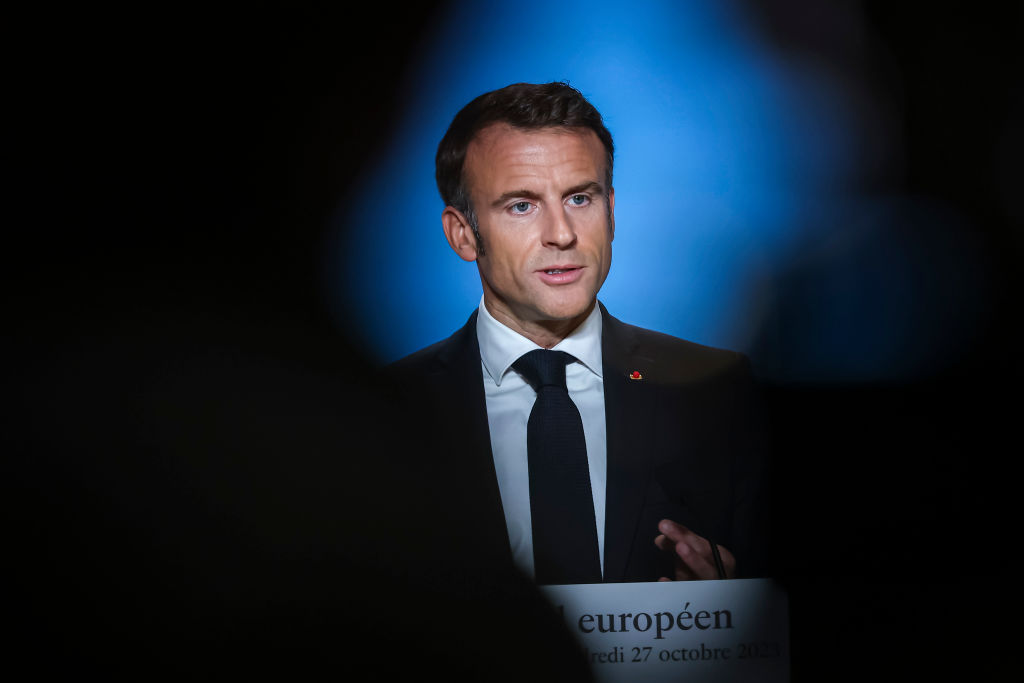Get the latest financial news, insights and expert analysis from our award-winning MoneyWeek team, to help you understand what really matters when it comes to your finances.
You are now subscribed
Your newsletter sign-up was successful
Want to add more newsletters?

Twice daily
MoneyWeek
Get the latest financial news, insights and expert analysis from our award-winning MoneyWeek team, to help you understand what really matters when it comes to your finances.

Four times a week
Look After My Bills
Sign up to our free money-saving newsletter, filled with the latest news and expert advice to help you find the best tips and deals for managing your bills. Start saving today!
Amid all the worry about the effect of the credit crisis on emerging markets, another vital issue for the developing world has been overlooked, says FAZ.net. Following years of strong growth and the surge in commodity prices, notably food (in some countries, subsidies cushion the impact of higher energy prices), inflation is "back with a vengeance". In Ukraine, it has hit 26%, Sri Lanka's rate is 25% and Latvia's 17%.
The Bank of Turkey foresees a rate of 10% in the third quarter, while in China inflation remained above 8% in March and non-food inflation hit a seven-year high of 1.8%, a sign price pressures may be spreading beyond food, says Capital Economics. Meanwhile, Russia is showing signs of overheating, with nominal wages growing by 30% year-on-year; higher labour and food costs are underpinning inflation of 13.3%. Vietnam's boom has pushed inflation to 21%. Merrill Lynch is now forecasting inflation across emerging markets of 6.7% this year, a seven-year high. And according to JPMorgan, inflation in developing economies is around 3% above the average target ceiling.
Food prices have a much bigger impact on overall inflation in poor countries as food comprises a larger share around 50% in some states of household expenditure. Another problem is that some countries still peg their currencies to the dollar, while others, in order to bolster exports, have been loath to allow their currencies to rise, which would help temper inflation. So monetary conditions in many emerging markets have been too loose.
MoneyWeek
Subscribe to MoneyWeek today and get your first six magazine issues absolutely FREE

Sign up to Money Morning
Don't miss the latest investment and personal finances news, market analysis, plus money-saving tips with our free twice-daily newsletter
Don't miss the latest investment and personal finances news, market analysis, plus money-saving tips with our free twice-daily newsletter
Effectively importing loose American monetary policy has spurred demand and inflationary pressure and has further underpinned raw materials prices. The IMF is now worried that inflation expectations in Asia are becoming entrenched no wonder, given that "the message in the food price riots is that these workers will soon be fighting for much higher wages", as John Plender says in the FT.
Burgeoning emerging market inflation "makes it unlikely" that the developing world can rely on domestic consumption to offset sliding exports as America falls into recession and Europe slows, as David Roche of Independent Strategy notes in the Wall Street Journal. That bodes ill for global economic health. The countries most exposed to commodity inflation, such as China and India, are "precisely the ones that the world economy now depends on for most of its growth", says Anatole Kaletsky in The Times.
Emerging countries are now having to tighten monetary policy to tame inflation even though growth in their export markets is slowing and undermining overall growth. China, Brazil, South Africa and India have all raised rates recently, and tighter monetary policy, which hampers growth, is not good news for stocks; high inflation also erodes profit margins.
JPMorgan has just cut its Asian index targets for this year to reflect the risk that central banks' ongoing response to inflation will squeeze domestic demand and investment. S&P's Alec Young, noting that years of strong non-inflationary growth have boosted emerging market valuations to developed country levels, reckons the inflation problem could result in an emerging market discount re-emerging.
Whether inflation or an American-led global growth slowdown ultimately proves the greater problem, the overall outlook for emerging markets is clouding over rapidly.
Get the latest financial news, insights and expert analysis from our award-winning MoneyWeek team, to help you understand what really matters when it comes to your finances.
MoneyWeek is written by a team of experienced and award-winning journalists, plus expert columnists. As well as daily digital news and features, MoneyWeek also publishes a weekly magazine, covering investing and personal finance. From share tips, pensions, gold to practical investment tips - we provide a round-up to help you make money and keep it.
-
 ISA fund and trust picks for every type of investor – which could work for you?
ISA fund and trust picks for every type of investor – which could work for you?Whether you’re an ISA investor seeking reliable returns, looking to add a bit more risk to your portfolio or are new to investing, MoneyWeek asked the experts for funds and investment trusts you could consider in 2026
-
 The most popular fund sectors of 2025 as investor outflows continue
The most popular fund sectors of 2025 as investor outflows continueIt was another difficult year for fund inflows but there are signs that investors are returning to the financial markets
-
 The French economy's Macron bubble is bursting
The French economy's Macron bubble is burstingCheap debt and a luxury boom have flattered the French economy. That streak of luck is running out.
-
 What is stagflation and what can be done about it?
What is stagflation and what can be done about it?The UK economy is showing signs of weakness, but inflation remains stubbornly high – a dangerous combination that economists call ‘stagflation’
-
 Mohamed El-Erian: inflation, disinflation and the mistakes of central bankers
Mohamed El-Erian: inflation, disinflation and the mistakes of central bankersPodcasts Merryn talks to economist Mohamed El-Erian about the state of the global economy, how the Fed became hostage to the marketplace, and how you should position your investments in distorted markets.
-
 Three key lessons on the 50th anniversary of the gold standard's demise
Three key lessons on the 50th anniversary of the gold standard's demiseAnalysis Since 1973, the global monetary system has been backed by the dollar, not by gold. John Stepek looks at whether that will last and what may be next.
-
 The IMF and World Bank: a truly gruesome twosome
The IMF and World Bank: a truly gruesome twosomeOpinion The International Monetary Fund and the World Bank, set up in 1944, now look sclerotic and ineffectual, says Jonathan Compton.
-
Greece emerges from intensive care
Features Following three rescue packages in eight years, the eurozone’s problem child is standing on its own two feet again. But the debt crisis has merely been managed, not resolved. Alex Rankine reports.
-
 Greece: another serving of EU fudge
Greece: another serving of EU fudgeFeatures Greece is finally emerging from its financial rescue programme, but it will have to keep a tight lid on spending for years.
-
 Rattled investors flee Turkey
Rattled investors flee TurkeyFeatures Investors' flight form Turkey, after Recep Tayyip Erdogan won last Sunday’s election, is making a nasty recession all the more likely.

